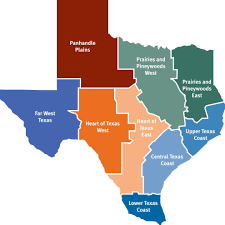Live in harmony with nature
L
L

Texas Parks and Wildlife
April 5, 9am - 12pm
Ages 5 & up, registration required (see programs)
Trophy Club Park Pavilion, 2885 Trophy Park Dr, Trophy Club, TX
June 2 - June 6, 9am - 12pm
Ages 5 & up, registration required (see programs)
Trophy Club Park Pavilion, 2885 Trophy Park Dr, Trophy Club, TX

Homegrown National Park
npsot.org/chapters/trinity-forks/tf-what-to-plant/
About Monarch Butterfiles


Monarch Waystation / Pollinator Habitat in the Adventure Loop
Why conserve monarch butterflies...
The monarch butterfly is one of the most iconic butterflies in North America and is known in part for its annual multi-generational migration over 3000 miles from overwintering sites in central Mexico and coastal California to as far north as Canada. Their decline is an indicator of pollinator habitat health across North America as well as the status of the larger pollinator community. Multiple critical population stressors including the loss and degradation of habitat across the species’ range have led to a significant decrease in the number of monarchs in the U.S. over the past few decades.
Did you know…
A fully-grown monarch caterpillar can weigh 2000 times more than it first hatched from the egg. Monarchs that fly to Mexico and return in the spring can live up to 9 months. It takes at least 2 months for monarchs to fly from the North to overwintering areas in Mexico. The overwintering sites were not known to science until 1975.
Create a monarch/pollinator friendly environment -
FOOD: Native milkweeds for monarch caterpillars
Nectar plants for monarch adults and other pollinators
SHELTER: Woody trees and shrubs protect monarch at night and bad weather
WATER: Mud puddles provide moisture and minerals
To promote preservation, conservation and restoration of Trophy Club Park Conservation Area (TCPCA), a small part of the Cross Timbers ecological zone and prairies, to maintain its natural environment through publicity, community education and volunteer recruitment, to raise public awareness of TCPCA as an asset to the community and surrounding areas.
To facilitate use of TCPCA as an education and recreation resources for understanding and experiencing the natural environment.
To collaborate and share like-minded visions and activities with our partners and other organizations.

Learn local ecosystems
Promote conservation and management of natural resources and natural areas through educating the communities
increase participant’s knowledge through continuous learning
Connect with environmental leaders for opportunities outside the program

Texas Nature Trackers (TNT), part of the Wildlife Diversity Program, tracks the status of wild populations of plants and animals throughout Texas.
Participating in TNT projects is a great way to learn more about the biodiversity of the state and contribute to Texas Parks and Wildlife’s research and conservation efforts.

iNaturalist is an online social network of people sharing biodiversity information to help each other learn about nature.
Primary goals of iNaturalist:
Connect people to nature
To generate scientifically valuable biodiversity data from users personal encounters with nature

Merlin is powered by eBird, features the best community contributed photos, songs, and calls, tips from experts around the world to help ID the birds for all levels of bird watchers and outdoor enthusiasts.

Adopt-A-Loop is a citizen science project by the Texas Parks and Wildlife Department (TPWD) and Texas Master Naturalists (TMN) to better understand the distribution of Texas' wildlife. The Great Texas Wildlife Trails (GTWT) are used by many to visit sites across the state for birding and other wildlife viewing.
Elm Fork Chapter of Texas Master Naturalist has adopted Trophy Club Park Conservation Area (TCPCA) trails in the Great Texas Wildlife Trails: Adopt-A-Loop program Prairies and Pineywoods West Wildlife Trail.
Growing Up Wild (GUW) is an early childhood education program that builds on children's sense of wonder about nature and invites them to explore wildlife and the world around them. Through a wide range of activities and experiences, GUW provides an early foundation for developing positive impressions about the natural world and lifelong social and academic skills.
Texas Parks and Wildlife
Join Texas Parks and Wildlife certified angler educators from Dallas Fly Fishers for an introduction to fly fishing. Learn to cast, tie basic fishing knots, tie flies and discuss their uses. Participants will also review equipment, learn about aquatic ecosystems, safety, fishing, ethics and regulations. All equipment and materials will be provided.
